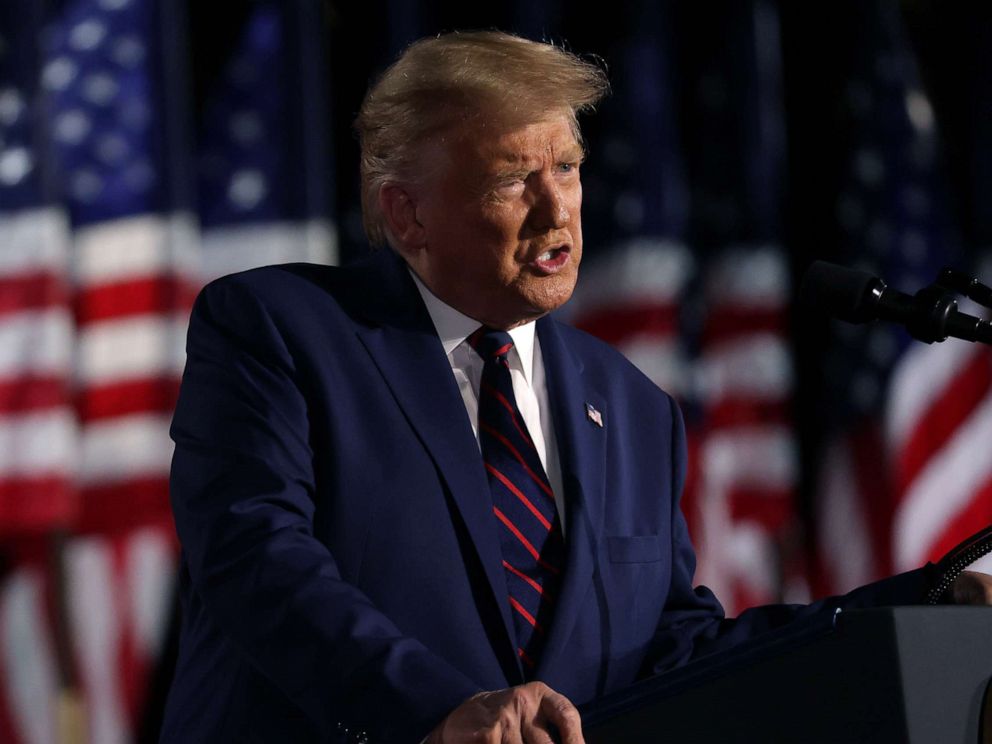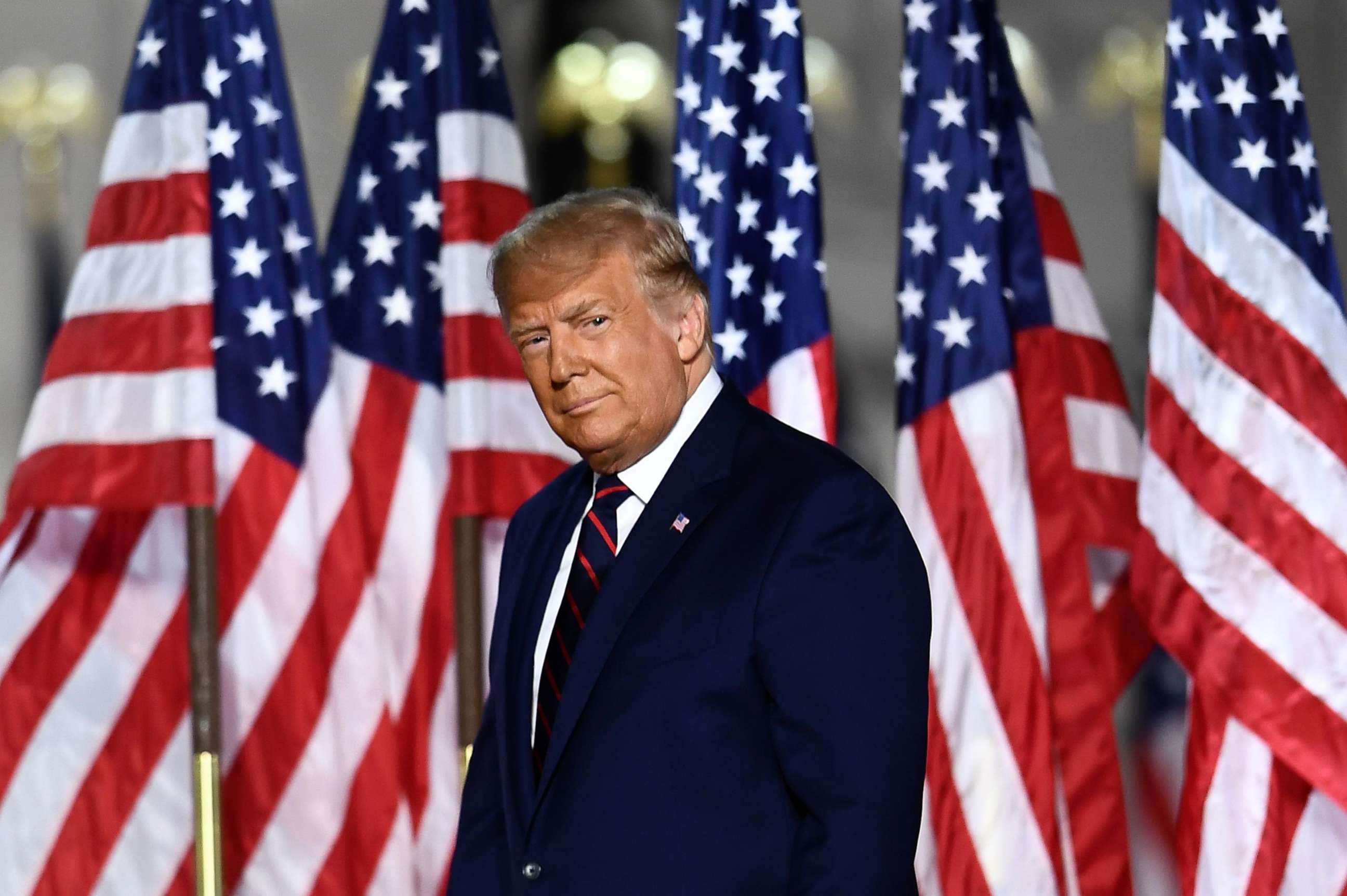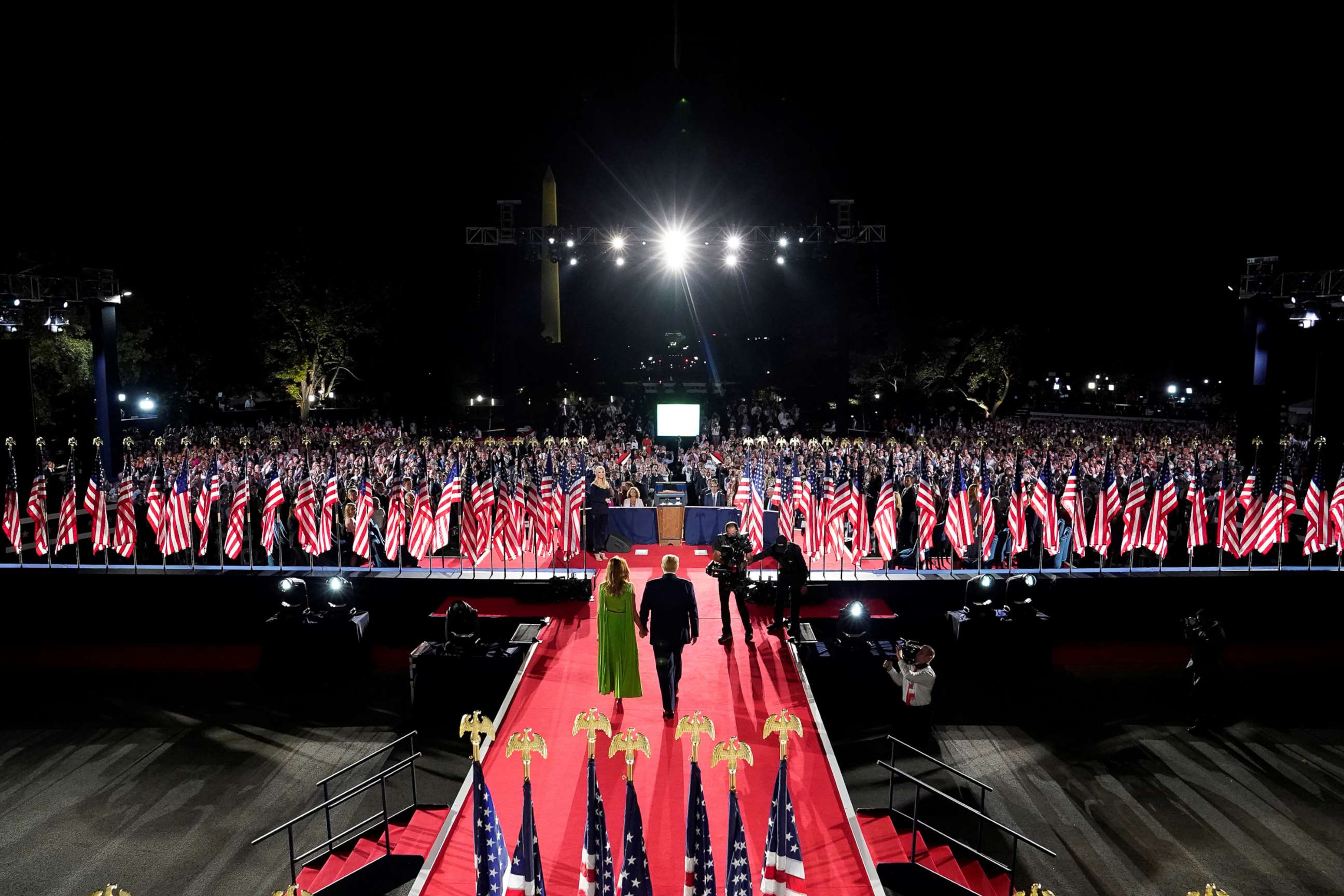Trump squares off with his own America as GOP convention concludes: ANALYSIS
Multiple crises are metastasizing simultaneously, all during Trump's presidency.
On the final night of the Republican National Convention, as protesters massed outside the White House that was transformed into a grand political backdrop, President Donald Trump offered a sentiment the nation actually can unite behind.
"At no time before have voters faced a clearer choice between two parties, two visions, two philosophies or two agendas," the president said Thursday, in accepting the Republican nomination for a second time with a meandering and searing speech.
It would have been a jarring scene in any moment -- bright lights and big "TRUMP-PENCE" signs on the South Lawn of the White House, as a giant political rally was held at the most famous residence in the United States.
The messaging, too, would be discordant in any time -- descriptions of American rot and violence joined by urgent pleas to reelect the president.

But this is not just any moment. It's a tense, angry, conflicted time, amid the biggest pandemic and most sudden economic collapse in a century, and unfolding reckonings around race and policing.
Multiple crises are metastasizing simultaneously -- all during Trump's presidency, of course. Speaking to upwards of 2,000 invited guests outside "the people's house," masks and social distancing were scant, despite the COVID-19 pandemic.
Trump offered a thorough and quite long recitation of achievements. The president used the biggest of stages to depict the biggest threats to prosperity and even "the American way of life" as coming … from his fellow Americans.
"Despite all of our greatness as a nation, everything we have achieved is now endangered," the president said. "This election will decide whether we save the American Dream, or whether we allow a socialist agenda to demolish our cherished destiny."
Out came a searing new attack on his Democratic opponent, Joe Biden -- including a wink-wink reference to "hugs and even kisses" he said Biden had given blue-collar workers over the years.
"Joe Biden is not a savior of America's soul. He is the destroyer of America's jobs, and if given the chance, he will be the destroyer of American greatness," Trump said.
That question of greatness, though, is a delicate one -- as evidenced by the sights and sounds dominating inside the country he leads. The aftermath of a Black man's shooting by police in Wisconsin has jolted the nation, and the economy is struggling under the weight of a pandemic that continues to rage.
Trump used events that have happened during his time in office to make his case. He ignored events that are inconvenient to his narrative; he did not mention Jacob Blake's name, but listed Kenosha, Wisconsin, as one of the "Democrat-run cities" suffering from "rioting, looting, arson and violence."

Earlier in the day, in a TV interview, Biden made an obvious but potentially powerful counterpoint: "The problem we have right now is we're in Donald Trump's America."
In Trump's narration of current events, the country's ills are virtually all reasons to retreat to partisan corners and fight. Speakers on the convention's final night tallied carnage from America's streets -- yet built that into an argument for four more years.
"These continuous riots in Democratic cities give you a good view of the future under Biden," former New York City Mayor Rudy Giuliani said.
The president's decision to have this kind of gathering at this time speaks to his views of his own power -- and the removal of any guardrails that might have previously constrained his actions. It was, like so many other things Trump has done, something no other president would likely even have considered.
Trump chose to offer pageantry and fireworks to compete with protests, and celebration to counter uncertainty. His followers loved it and his opponents hated it. In other words, Trump was no doubt happy right where he was.
But the campaign argument from here is a somewhat awkward one, as encapsulated by a clunky turn of phrase favored by Vice President Mike Pence: "Make America great again, again."

For all that Trump was shattering norms all week, he was doing something pretty basic that incumbents do. He used his convention to try to turn a referendum election into a choice, mainly by seeking to disqualify his opponent.
Biden is well-known, though, and generally better-liked than Trump himself. The issues Trump is seeking to recast and rewrite the history of include many that the American people have lived day in and day out for month.
Yes, Trump is digging in against his political enemies. But he's also squaring up against powerful forces in his own America.




